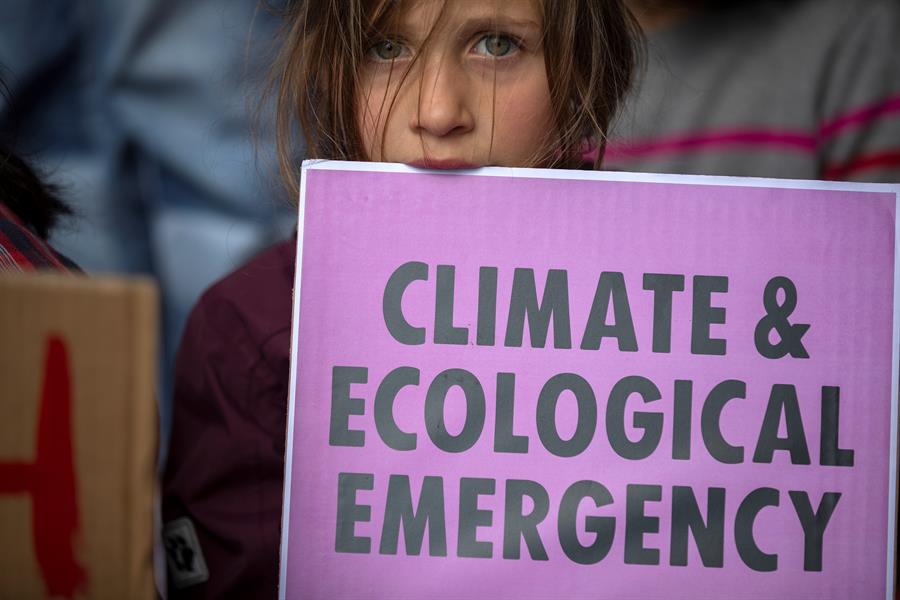The 7 "points of return" to save the planet
Melting poles, record temperatures, disappearing forests and reefs... Every day we know of points of no return serious enough to overshadow the celebration of World Environment Day, yet there is hope for restoring the planet's balance and it lies at social tipping points.
Action on environmental problems is so long overdue that at this point only a rapid and radical shift in a positive direction could change the pace of things.
And while the real chances of a sudden and coordinated turnaround may seem slim, scientists stress that major social changes are not linear.
Hence the transformative power of social tipping points, understood as those "windows of opportunity where small social or attitudinal changes would have a multiplier effect capable of precipitating large-scale change in a positive direction for the environment".
This was explained to EFE by Nerea Morán, an architect, member of the organisation Germinando and one of the authors of one of the most solid studies on this subject, published in the American National Academy of Sciences (PNAS).
Roger Cremades, a scientist at Wageningen University (Holland) and co-author of the study, told Efe that these changes would expand, in the same way as an oil slick, a transforming action that would allow us to break out of the linear processes of environmental deterioration and lead us, irreversibly, to a new stable state for the planet.
According to the scientists, these are the seven major areas with the potential to turn the planet around:
1. ENERGY
One of the changes with great potential to have a butterfly effect would be for a significant number of governments to put an end to all kinds of subsidies for fossil fuels and massively encourage self-consumption of renewable energy.
Richard Hewitt, research coordinator of the Culture and Territory Observatory and expert in social turning points, assures EFE that "this could be one of the significant transformations we see, given that renewables are already cheaper than fossil fuels".
2. CITIES
Residential uses account for 20% of global emissions, a rising figure due to the increasing concentration of people in cities.
The tipping point will come the day when fossil-free technologies become the first choice for new building projects, and low-emission mobility options overtake polluting ones.
3. DISINVESTMENT
The financial system can be another key lever for environmental turnaround.
To act as such it must perceive the risk that assets related to fossil fuels or that involve polluting the planet may lose value.
Pension funds and insurance companies have already started to divest, at different speeds depending on the country and the fossil source, says Cremades.
Coal investments have slowed or been abandoned almost everywhere in the world, while gas investments are still little affected.
4. SOCIAL CONTAGION
Scientists warn that a sufficiently large committed minority of about 25% of a group can trigger major changes in the other 75% through a social contagion effect.
This phenomenon, well explained by economist Robert Frank in his book "Under the Influence", explains why when someone installs solar panels at home or buys a cleaner car, more people around them follow in their footsteps.
"We have also seen this with the Fridays For Future climate strikes of school children around the world or the Extinction Rebellion protests. There is great hope for cascading change in social movements," stresses Nerea Moran.
5. EDUCATION
The widespread introduction of environmental impacts into the school curriculum a decade ago, accompanied by less rigid and more nature-based learning strategies, has had a visible impact on the millions of young people around the world who have protested about the planet they will inherit.
6. INFORMATION
What would happen if consumers had information on the emissions generated by a food or utensil on its labelling? Researchers have found that the more information about the ecological footprint of a shopping bag, the more environmentally friendly it is for the planet.
"Just as there are applications for counting steps or calories, there will soon be applications for the ecological footprint and they will serve to provoke a change in consumption patterns," says Cremades.
7. FOOD
A shift towards greater consumption of vegetable protein over animal protein, as well as towards organic and local foods to encourage more localised and circular economies, would be another key turning point.
France already has a pioneering law in this regard - the Agriculture and Food Law or Egalim Law - which promotes a more planet-friendly diet and includes strict measures against food waste.
THE DEBATE IS ON THE STREETS
The debate on social tipping points is already on the streets.A few weeks ago a citizens' initiative was launched in the Netherlands calling for a coalition government whose action focuses on implementing the social tipping points.
Researchers agree that saving the planet depends more on small, multiplying changes with a butterfly effect than on big declarations or international agreements to achieve objectives in a coordinated way.
"It's a natural step, there are people who are going to organise and spread these changes until they pick up speed and become unstoppable. They will change the world as we know it," concludes Cremades.
Original article from EFE Verde.
